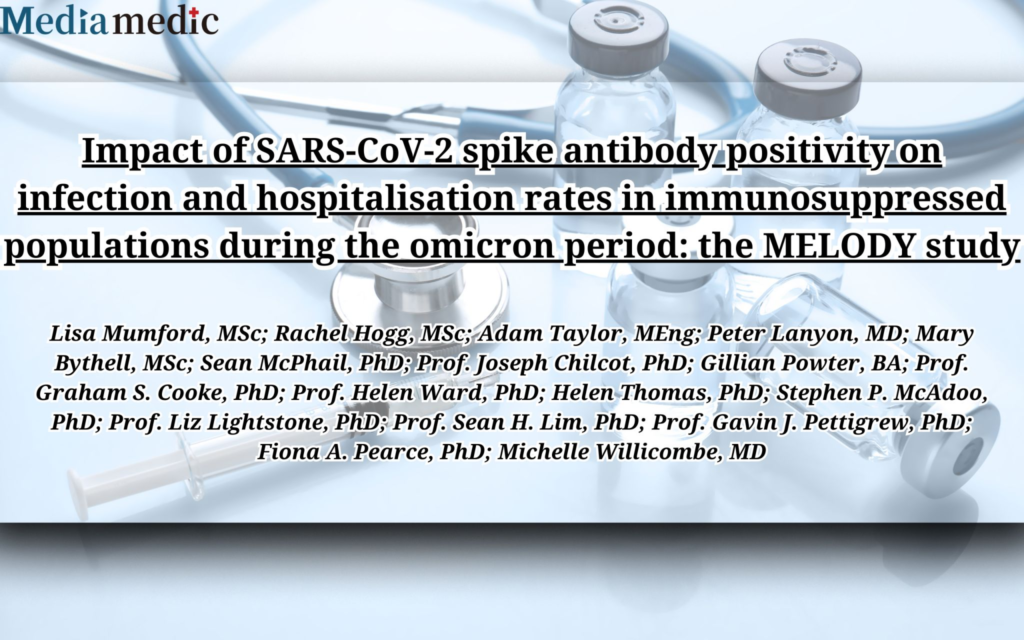
Valuable researchers have conducted an extensive population-level study assessing how SARS-CoV-2 spike antibody (anti-S Ab) positivity influences infection and hospitalization rates in immunosuppressed populations during the Omicron period. The MELODY study, conducted in the UK, analyzed data from over 21,000 participants, including individuals with solid organ transplants, rare autoimmune rheumatic diseases, and lymphoid malignancies.
Key findings revealed that the presence of anti-S Ab significantly reduced both infection and hospitalization risks. For instance, the incidence rate ratios (IRRs) for infections were notably lower in antibody-positive individuals: 0.69 for solid organ transplant recipients, 0.57 for those with rare autoimmune rheumatic diseases, and 0.62 for patients with lymphoid malignancies. Similarly, hospitalization risks were markedly decreased, highlighting the protective effect of detectable antibodies.
These findings emphasize the importance of continued COVID-19 protection strategies for immunosuppressed individuals. Regular assessment of anti-S Ab responses can help identify those at higher risk, paving the way for personalized protection approaches.


